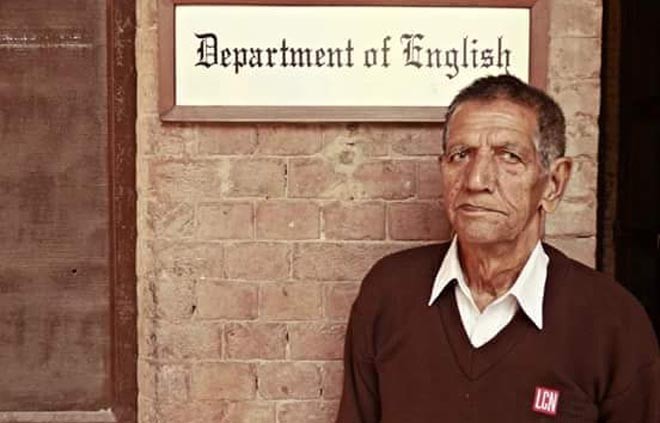
A personal memoir of Murad Ali Shah who enjoyed the relative power that came through association with the office of the Principal of GC

Murad Ali Shah, fondly known as Chacha Murad of GC, passed away recently. His death went unnoticed except by those who have had an association with Government College, Lahore, particularly its English Department.
A cousin of Dr Nazir Ahmad, the legendary post-Partition Principal of GC, Chacha Murad moved to Model Town Lahore in August 1947 from his ancestral village of Bazidpur in the state of Nabha in East Punjab. He was inducted into the college on Dr Nazir’s recommendation as a caretaker of the college’s lush gardens and lawns by the then Principal AS Bukhari Patras.
Whenever Patras was mentioned, Murad would always recall his "sahib" with a smile, and would proceed to tell his audience about the time when his sole duty was to sit guard outside the Principal’s Lodge, sadly no longer there despite redundant rhetoric about traditions, and wait on the "memsahib."
Murad enjoyed the relative power that came through association with the office of the Principal of GC. To his last day, he made sure to assert his superiority among the auxiliary staff, and never shied away from the occasional bullying of students. He did not consider bullying to be ‘corruption.’ He would happily recall the special glass of lassi that was sent only for him from inside the Principal’s Lodge, and which he never shared with the other caretakers working on the lawns.
When asked about what he thought was the main reason for decay, Murad would often narrate an incident from the past as an example of where the society and the institution had gone astray. It was during the glorious time that Professor Sirajuddin was Principal of the college.
Impossible as it would be for anyone to imagine it today, the GC Oval was once a vibrant and throbbing centre of physical activity. One evening, Murad spotted a few young hostelites flying kites in the Oval. As was his wont in those heady days of his youth, he decided to interrupt them. The students retaliated and snubbed him. According to Murad, all this was witnessed by the Principal from a distance. As he would proudly recall, Principal Sirajuddin himself walked to the Oval, casually asked the students for their identification, and then walked back to his office. There, he wrote a letter to the Hostel Superintendent, instructing him to immediately expel those students from the hostel, as they had "insulted me in insulting my peon."
Chacha would explain that it was this culture of respect and a no-nonsense-will-be-tolerated attitude that made GC the great institution that it once was.
Murad fell ill towards the last years of his life. Once a permanent all-weather fixture at GC, his last three years were spent taking long leaves of absence. Always in need for money to pay for his medicines, he was utterly devastated when his contract was not renewed. He was almost 90 years old. He knocked at the doors of various officers in GC who had always claimed to be his friends. However, nobody helped him -- till one day, angry and fed up, he walked to the Civil Secretariat where many of the former students of GC are currently serving in enviable positions. Lo and behold, his contract was restored and the meagre pittance of an allowance was granted to him in lieu of a lifetime of unquestioned service. For him, this was enough.
It is a pity that no serious attempt was ever made by any oral historians to record the memories of this subaltern, who lived on his own terms. Perhaps this was because the story of a goat-herd who became a caretaker and a peon was not a story that had a ready audience.
A former faculty member has suggested that one of the classrooms in the department should be named after Chacha Murad. One hopes that this suggestion is acted upon.